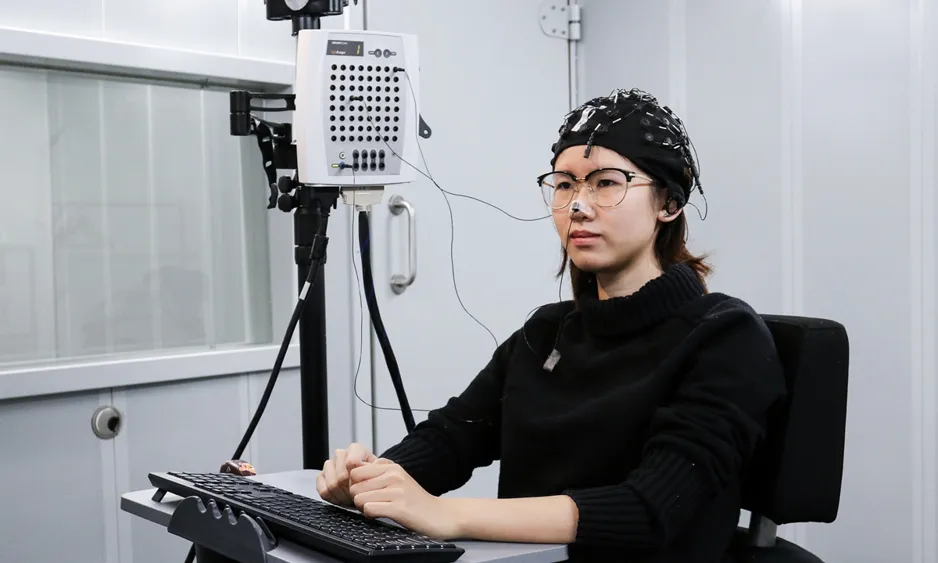Chinese Researchers Boost Development of Brain Computer Technology

Chinese researchers are making significant strides in the realm of brain-computer interface (BCI) technology, notably through the development of a semi-invasive system. This progress, which holds promise for addressing neurological impairments, is anticipated to have a profound impact on both healthcare and technology industries.
At the forefront of this research is the Chinese Institute for Brain Research (CIBR) in Beijing, along with its startup partner NeuCyber NeuroTech. The team has successfully created a semi-invasive BCI system named Beinao No. 1 and completed their inaugural series of five human implants this year, as confirmed by a representative of the company.
The advancements in BCI technology have attracted considerable international attention, with some media outlets branding it as the world’s first successful batch of semi-invasive wireless interfaces implanted into human subjects. This level of scrutiny underscores the groundbreaking nature of the findings.
A report from CNN noted the significant potential of the Chinese brain chip implant, highlighting its capacity to help restore speech and mobility. This has incited a global competition in technology, as these breakthroughs posed challenges to established leaders in the field, such as Elon Musk's Neuralink.
Despite the momentum in BCI development, the questions surrounding the technology's maturity and its potential to fulfill the futuristic capabilities often depicted in science fiction remain. A recent visit to CIBR's laboratories revealed the sophisticated equipment involved in this interdisciplinary field, which spans medicine, mechanics, communications, and computing.
Established in 2018, CIBR has positioned itself as a key player in BCI research and innovation. For instance, the Beinao-1 system was recently implanted in a patient suffering from speech impairments due to amyotrophic lateral sclerosis (ALS). Through decoding neural signals, the patient was able to convey messages, demonstrating initial success.
With training, this patient successfully generated over 60 frequently used Chinese words and phrases following surgery. The underlying technology of BCIs revolves around capturing electrical signals between brain cells that facilitate essential functions, allowing for the translation of brain intentions.
Current BCI applications largely focus on medical use, such as enabling paralyzed individuals to control devices through neural signals. Companies like Neuralink have showcased how patients can operate computer cursors or robotic arms, and China's Beinao-1 is similarly aiding ALS patients to regain communication abilities.
BCI technology can be categorized by the degree of invasiveness: non-invasive systems, which are the safest yet provide lower precision; semi-invasive systems, like Beinao-1, that balance surgical risk with signal quality; and invasive systems, such as those developed by Neuralink, which offer high precision at increased risk.
The Beinao-1 has successfully assisted paralyzed patients in utilizing mind control to interact with computers and robotic devices. Most notably, it marked a pioneering achievement as the first fully implanted wireless BCI capable of decoding the Chinese language, a task that presents unique complexities due to the intricacies of Chinese characters.
As CIBR looks to the future, it is actively developing Beinao-2, aimed at further enhancing signal quality with different methodologies, having already shown significant success in preliminary trials. The potential applications for BCI technology in areas such as disease diagnosis and rehabilitation are expanding, positioning China as a growing hub for BCI innovation.
While there is optimism regarding the future of BCI technology, the reality is that much remains unknown about brain functions. Current understanding of complex activities like memory and emotion is limited, indicating that the technology is still in its nascent stages and far from the advanced applications shown in media.
Read These Next

Zuckerberg Announces META THREADS Reaches 400 Million Users
Meta's CEO Mark Zuckerberg announced THREADS has 400M monthly users, reflecting its growing influence amid TikTok's competition.

Implications of Terminating Bond Issuance in Corporate Finance
A critical commentary on the termination of a company's convertible bond issuance and its implications for funding, regulatory scrutiny, and investor sentiment.

Tesla Hiring Robotaxi Test Drivers in NYC Without Permits
Tesla is hiring robotaxi test drivers in New York City, yet it has not applied for requisite permits, raising regulatory and safety concerns about its autonomous vehicle operations. This article examines the implications of Tesla's strategies amidst declining EV sales and the challenging regulatory landscape.
